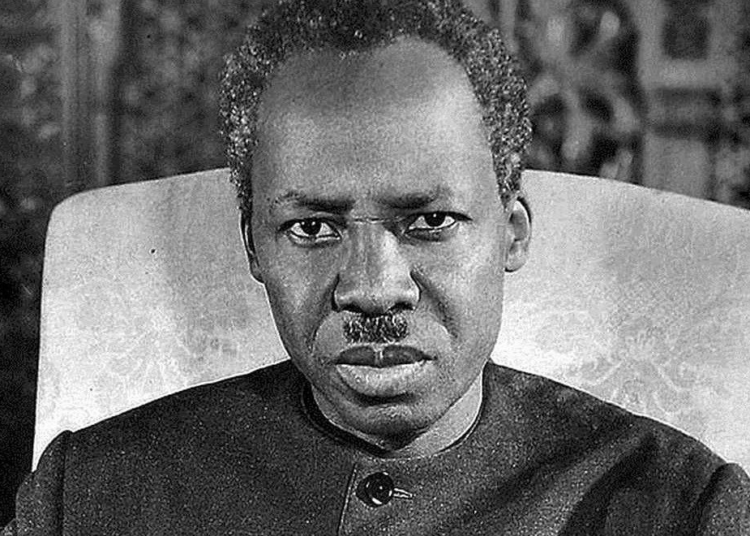The general perception of politics, even in more advanced climes and democracies, is that it is a dirty game which, with very few exceptions, goes with all that is bad and ugly. Also, many see politics as not an enterprise, clean enough to attract decent personalities. In Nigeria, individuals who have a lot to offer the nation, shy away because of the fear that their image may be dented, tainted and tarnished in the process. That leaves the nation with mostly men whose characters leave much to be desired and women who, beyond their contrived good looks, have not much to offer in terms of quality service to the nation.
But the late First President of Tanzania, Mwalimu Julius Nyerere, changed that perception as he proved that politics, with all its stained connotations, can co-exist with justice and righteousness. Nyerere confirmed the Chinese saying that one can fall into a ditch and not defiled.
As president of his country, Professor Chinua Achebe, in one of his works, noted that Nyerere would delay his children’s school fees, actually write to the school authority to bear with him till the end of the month when he would get his salary to be able to meet those obligations. He reportedly took bank loans, not on personal cognizance, to build his personal house and buy a personal car.
A peep into his Arusha Declaration would reveal the decency and humaneness that dominated his thought process and influenced his activities as a politician of note not only in Africa but internationally. His emphasis, at all times, is the well being of humanity as a whole.
Considered both as a Christian humanist and socialist, he argued that the Roman Catholic Church must involve itself in “the rebellion against those social structures and economic organizations which condemn men to poverty, humiliation and degradation”. He warned that if it failed to do so, then, it would lose relevance and “the Christian religion will degenerate into a series of superstitions accepted by the fearful”. Despite his personal religious commitments, he espoused freedom of religion and the right for individuals to change their religious adherence.
It is, therefore, no surprise that Nyerere is on his way to becoming a Saint as the Cause for his Beatification and Canonization is in progress. Already, the Metropolitan Archdiocese of Dar es Salam has constituted a Diocesan Tribunal for the Cause of Beatification and Canonization of the Servant of God, Julius Nyerere. We recall that on May 13, 2005, the Holy Father, Pope Benedict XVI, declared Julius Kambarage Nyerere, the Servant of God which was also the first step for the start of the beatification and finally canonization to sainthood.
On May 2, 2014, the Congregation for Causes of Saints issued a rescript, a formal reply by the pope or some other high dignitary of the Roman Catholic Church on a matter of doctrine or discipline, that canonically permitted the competent forum for the Diocesan Inquiry on the Servant of God “Mwalimu” Julius Nyerere from the Diocese of Musoma to the Archdiocese of Dar es Salaam.
Similarly, the Archdiocese of Dar es Salaam has nominated the officials of both the Tribunal and the Historical Commission in Dar es Salaam. With that, the rescript permitting Church in Tanzania to proceed with the rogatory process, requesting information, especially information that might be pertinent to a case, has been issued.
The consultors of the Congregation of Causes of Saints regard this cause as of maximum priority, as manifested in their unusual willingness to act so fast in transferring the competent forum to Dar es Salaam and have expressed that the Cause of Mwalimu Nyerere is the most important cause that comes out of Africa now, a model of political holiness that is essential in the Church today
Deepening his Catholicism, Nyerere had studied Papal Encyclicals and read the work of Catholic philosophers and established a branch of Catholic Action at the university where he studied.
This newspaper, enamoured by the fact that a politician is being considered appropriate, at all, for the commencement of Cause of Sainthood, feel sufficiently persuaded to flip to the Nigerian side. In our opinion, what is so pervasive is a direct opposite of why the Catholic Church, as an institution, is convinced that Nyerere, having exercised restraint in the face of obvious possibilities of the nature that would have enhanced his propensity, if he had it, towards personal aggrandizement, deserves the attention he is receiving after his death.
We feel sad to observe that what exists among contemporary politicians in positions, even as local government councillors, those Arthur Nzeribe said had no clean pair of shoes on coming to office but end up as multi- millionaires during and after ‘service’, is not worth commenting on. Once they come into office, their children are taken to exclusive schools in Europe and America, mansions befitting their new status mushroom in not just their villages but also in cities in the country and, of course, holiday resorts abroad. These, in addition to flourishing businesses financed by stolen state money and run by fronts, fleets of cars, private jets as well as yachts.
In all fairness, some Nigerian politicians, especially of the first Republic, may qualify to be in Nyerere’s class of selfless leaders. The point on issue here, however, is that something good and saintly can come out of the filth-infested politics in Africa. Nyerere has proved it and this ought to be a lesson for politicians in Nigeria who, like the biblical Sadducees, believe that there is no life after death.
We’ve got the edge. Get real-time reports, breaking scoops, and exclusive angles delivered straight to your phone. Don’t settle for stale news. Join LEADERSHIP NEWS on WhatsApp for 24/7 updates →
Join Our WhatsApp Channel










